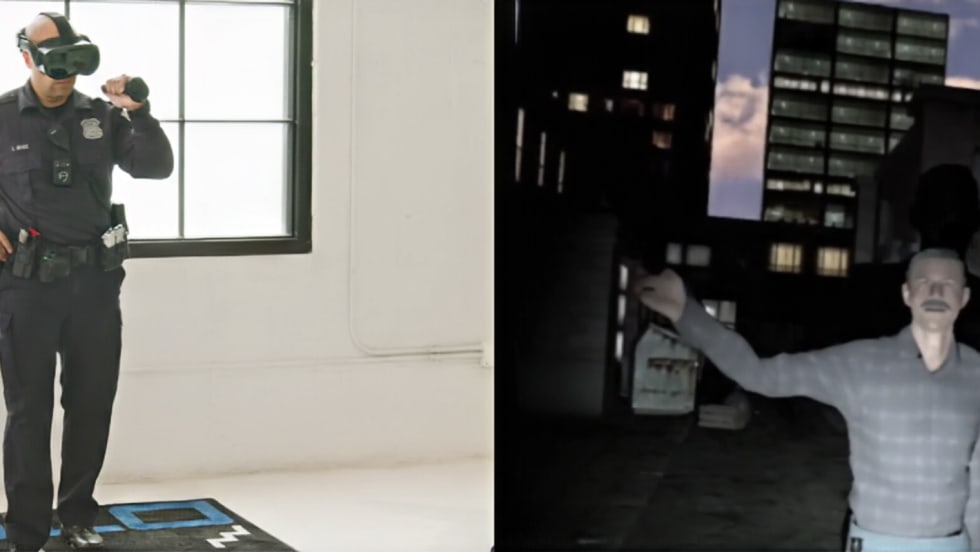For those seeking promotion, there is always the possibility of not getting one. Although when you don't get the promotion it might seem like the end of the world, it isn't.
Everyone starts out the same in law enforcement; you get hired, go to the academy, and then you do your time on probation. After that, there are usually two choices you can make: what assignments you want and if you want to become a supervisor.
I've known officers who never wanted any rank, and I have known officers that wanted nothing less than chief or sheriff. Making your choice is not the same as being successful at it. For those seeking promotion, there is always the possibility of not getting one. Although when you don't get the promotion it might seem like the end of the world, it isn't.
Initial Reactions
Anger, resentment, and even depression are normal reactions to being passed over for promotion. It's not our emotions that get us in trouble, it's how we react to them. Your first step is to cut yourself some slack and give yourself some time to deal with those emotions. Put some distance between you and the event by doing something physical. Go for a walk, lift weights, or practice your favorite kata. Next, talk to a friend or mentor about what's going on with you. It's not about advice, but about your getting a chance to vent. Once that's done, you can start looking at what happened and why.
Learning to Deal With It
Accept what is. Unless you have grounds for some type of lawsuit, it is what it is. There are many factors that you might not have considered. Perhaps you are a poor test taker. Maybe you don't do well under the time constraints of an assessment center. Or it could be politics played a role and you didn't support the right person. Keep in mind, none of these issues points to your not being able to do the job.
Figure out what went wrong. Be honest. It's very important so you can learn from any mistakes you have made. It could have been as simple as misreading the situation during the assessment center. Maybe you changed one too many answers on your written test. Perhaps you should have studied more. Blaming it on the process is not only lying to yourself but preventing you from doing better the next time. How can you make changes in your approach if you don't know what they are?
Solicit feedback. One way to improve next time is to get feedback from fellow officers, supervisors, and mentors. Ask what you could have done better. The next question you ask is how they handled the process and what they did that helped them get promoted. Get input from all angles.
What next. Should you try again or just be happy with what you're doing now? That's entirely up to you and not something you have to decide right away. Sometimes officers forget the extra responsibility they must take on as a supervisor. The extra money might be tempting but there is no such thing as a free ride. The headaches that come with the position may not be worth it to you in the long run. Maybe you're not ready and another year's experience will make a huge difference. Only you can decide.
Other Factors
Just because you made the promotion list doesn't mean you will get promoted. Here are some factors that might have affected the decision of the powers that be, in no particular order.
1. You lack skills. You need to become familiar with the requirements of the job you want, and determine what skills you need. If the position requires previous investigative work and you don't have any, you're not getting selected no matter how good you are. There may be ways around that, but it's still not your decision to make. You need to find ways to get the skills you need and take it from there.
2. You lack the soft skills. Since law enforcement is in the people business, you need people skills. You need to understand how to deal with conflict, know when to use diplomacy, and above all else, have outstanding verbal communication skills. It's a simple truth that the words you use can get you into trouble more than anything else.
3. You don't take feedback well. When you receive feedback from fellow officers or supervisors, resist the urge to defend yourself. It's usually not personal, so listen first and evaluate later. See what applies and what doesn't. There are always nuggets of truth you can turn into action. If you fight with everyone trying to help, eventually no one will want to help you.
4. You lack professionalism. Professionalism involves more than doing your job well. It involves integrity. For example, if you have difficulty maintaining confidentiality, are always saying negative things about the agency, or are involved in gossip, you lack professionalism. If you don't look the part, you lack professionalism. If you don't show up for training, you lack professionalism. You get the picture; no one promotes a boat anchor.
5. You don't take initiative. Becoming a problem solver shows that you care, not only about your own career, but about the agency. Find ways to get involved in finding solutions. You shouldn't have to wait to be told to do something; you should recognize what needs to be done, and go do it.
6. You don't think like a supervisor. As we do our jobs, it's important to add the supervisor dimension to our decision-making. Thinking like a supervisor now will help you when you are one. Anticipate what your supervisor will need and get it done before they ask. Understand the bigger picture and how your work affects others.
7. You are a perfectionist. Being a perfectionist gives the illusion of being a hard worker, but it creates problems. It can lead to indecision or wasted time spent on reinventing the wheel. When you are a perfectionist, you have trouble letting go and you also make others feel their work isn't good enough.
8. You stay in your comfort zone. You are great at what you do and don't want to try anything else. Command staff tend to look for officers who want to grow with the agency. Showing interest in several aspects of the agency will make you seem worthy of their investment.
9. You are a pessimist. You may be great at what you do but you spend more time focusing on why it can't be done than finding ways to get it done. That's not to say that contingency planning is not important, but that's different from poking holes at everything the agency is trying to accomplish. Pay attention to your attitude especially when communicating with others. If you change your perspective, you will change how others perceive you.
It's Your Choice
When I expressed interest in becoming a captain, I was told I would never make captain unless I had some detective time. Since I was not interested in becoming a detective, I retired as a lieutenant. That was a choice I made. As you make your choice, remember that your character defines you, not your rank.
Amaury Murgado retired a senior lieutenant from the Osceola County (FL) Sheriff's Office with over 29 years of experience. He also retired from the Army Reserve as a master sergeant. He holds a Master of Political Science degree from the University of Central Florida.












